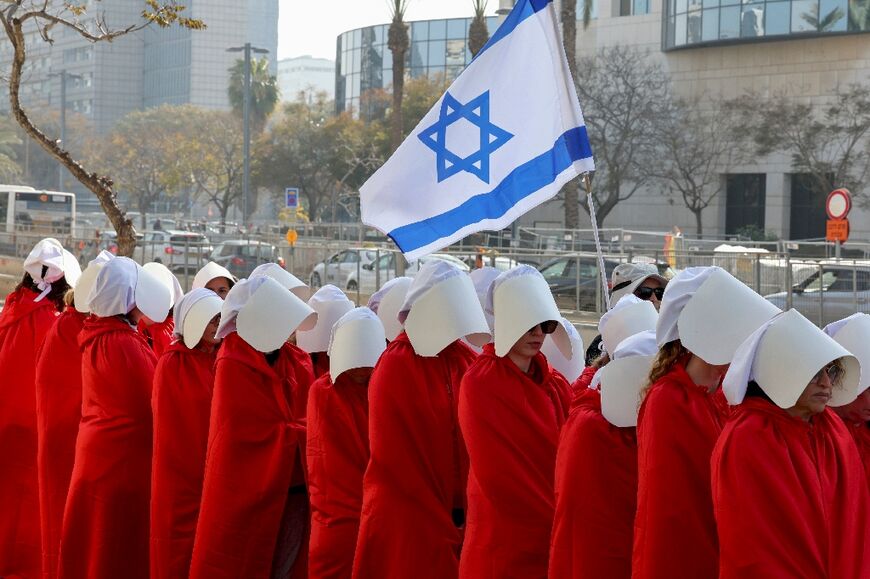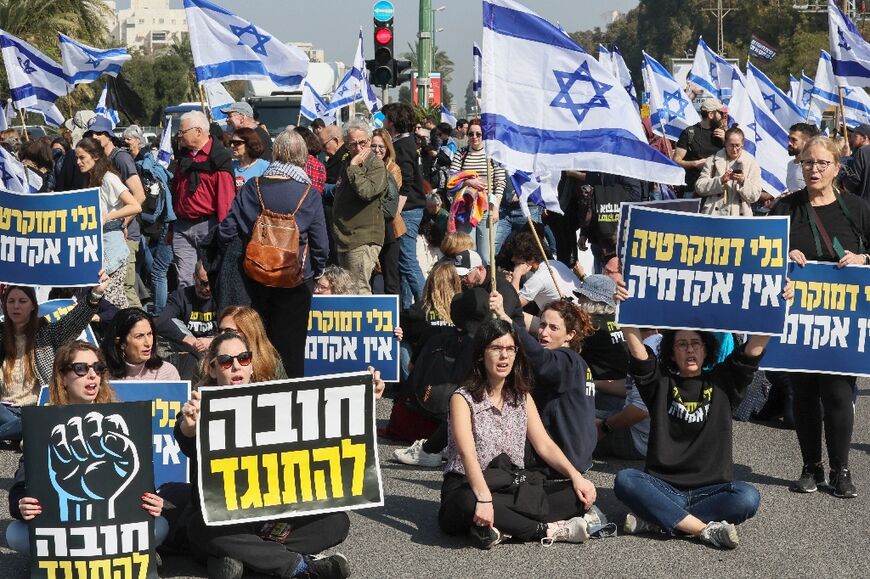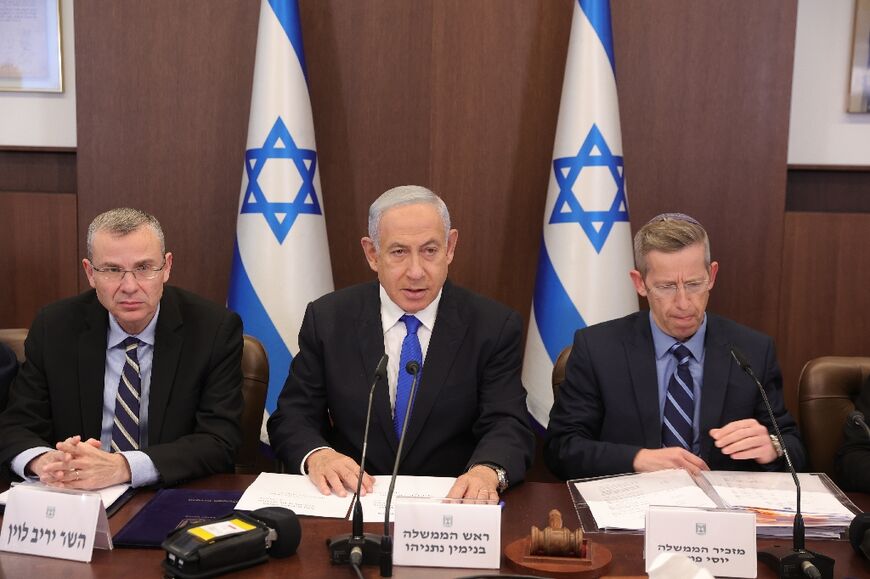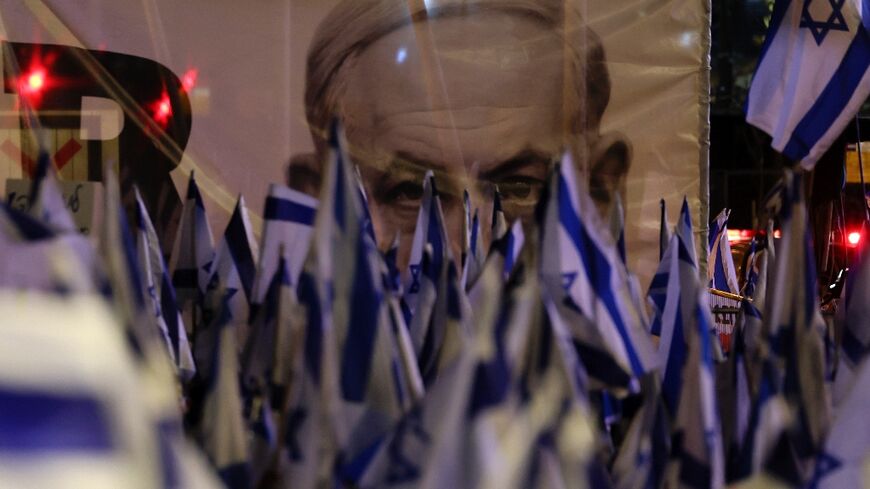Israelis rally against judicial reform bill ahead of vote

Tens of thousands of Israelis protested Monday against the government's judicial reform bill which they say threatens democracy, as lawmakers prepared to vote on key parts of the controversial overhaul.
Demonstrators from across Israel descended on Jerusalem to rally near parliament ahead of the first reading of legislation to change the way judges are picked.
"I'm really worried," said paediatrician Adi Aran, part of a crowd of protesters waving the blue and white national flags.
The proposed reform, which would give elected representatives more control of the judicial system, might stop Israel from being "a state my children can live in", added Aran, from the Har Adar settlement in the occupied West Bank.
Several Israeli media outlets judged the crowd to be more than 40,000 people, but there was no official police estimate.
By the early evening, protests had calmed, with lawmakers continuing to debate into the night ahead of an expected vote. A total of three votes are required for the bill to become law.
The sweeping judicial reform programme is a cornerstone of Prime Minister Benjamin Netanyahu's administration, an alliance with ultra-Orthodox and extreme-right parties which took office in late December.
The premier presents the overhaul as key to restoring balance between the branches of government, as he believes judges have too much power over elected officials.
- 'Shame' -
Netanyahu on Monday accused protest leaders of "trampling on democracy" and failing to "accept the election result".
He has expressed a willingness to talk to the opposition but vowed to press on with the legislation without delay.
Police officers guarded barriers in Jerusalem to prevent protesters, with only a handful breaching the precincts -- without managing to reach debating chamber -- before being stopped.
Inside parliament, several opposition lawmakers with the Israeli flag draped around their shoulders disrupted the debate by shouting "shame", and were temporarily removed.
Lawmakers debated measures to change the composition of the committee to select judges, as well as a bill to prevent judges from ruling against the so-called Basic Laws, Israel's quasi-constitution.
Critics accuse the government of a power grab, and weekly protests in Tel Aviv against the legislation since early January have drawn tens of thousands.
Opposition chief Yair Lapid said the situation amounted to "the worst internal crisis the state of Israel has ever known".
"We will not give up," he said in parliament.
- 'Everyone affected' -
In Jerusalem, protester Kovi Skier took aim at the government's plan to allow parliament to overrule any Supreme Court decision with a simple majority.
"If there's no judicial review, the government can make whatever policies it wants without any limitations," said the 33-year-old from the central city of Givat Shmuel.
"It could make policies against women, policies against Arabs, policies against the religious, it doesn't make a difference who. Everyone will be affected," he added, carrying his daughter who was clutching an Israeli flag.
"The state is in danger," said Dvir Bar, a 45-year-old protester from the central city of Holon, accusing reforms of being "a coup attempt aimed at transforming Israel into a dictatorship".
President Isaac Herzog, who holds a largely ceremonial role, said he is "worried about what is happening in Israeli society" and views the situation as an existential crisis.
"We face a fateful test. I see the rifts and fissures between us, which are becoming deeper and more painful at this time," Herzog said Sunday.
The reform would give the government a de facto majority in the process to nominate judges.
Currently, jurists are chosen by a panel overseen by the justice minister that includes judges, lawmakers and lawyers representing the Israeli Bar Association.
Under the proposals, the association's members would be removed and two "members of the public" would be named by Justice Minister Yariv Levin's office instead. Sitting judges would still be on the panel, as would another Israeli minister.








